- Home
- Lisa Gardner
Never Tell Page 9
Never Tell Read online
Page 9
Which, again, D.D. found interesting. Where had a rich girl who grew up in Cambridge learned home improvement skills?
“What about her relationship with students?” Phil asked now.
“Her students loved her.”
“All of her students?”
Cathy shook her head. “Nothing stands out. We’re nearly halfway through the school year now; Evie didn’t mention having problems with any particular teen.”
“What about a student who might’ve needed extra attention? Been unusually demanding of her time.”
Again, the science teacher shook her head. “You might ask Sharon—Principal Ahearn. I hadn’t heard of anything.”
Phil and D.D. exchanged glances. The principal already seemed like a dead end when it came to learning more about Evelyn Carter. Asking for detailed information about students probably wasn’t going to get them any further; school administrators were naturally disinclined to share those kinds of records.
“Did Evie have a computer?” Phil asked now, nodding to the one on Cathy’s desk. “One assigned for her by the school, or she would’ve used to contact students.”
“Sure. We all have school-issued laptops. Though much of what we do is handled by apps now, on our personal cell phones. Attendance, school grades, you name it. The modern era.”
In other words, Evie should have a computer in her classroom. Which, once they had the proper warrant, might prove a useful bread crumb given their total lack of a digital trail right now. E-mails with students, other staff, maybe even Google searches Evie had felt safer doing in the relative privacy of her workplace, rather in her own home, just down the hall from her husband . . .
Phil’s cell rang. He glanced at the screen, frowned. “Excuse me a moment.”
He put the phone to his ear. D.D. could tell it was one of his fellow detectives, probably Neil or Carol, based on the fact that Phil didn’t speak as much as grunt. Uh-huh, uh-huh, uh-huh. Then, turning toward D.D.: “We gotta go.”
Cathy was already rising to standing. Phil handed her a card. “Thank you for your time, we’ll be in touch.”
He didn’t give the bewildered educator time to reply or ask any other questions. Instead, he was already turning on his heel, heading toward the hall with D.D. in his wake.
“What, what, what?” she demanded as she finally reached his side.
“You’re never going to believe this. Evie and Conrad’s home, our crime scene . . .”
D.D.’s heart sank. She didn’t need to hear what Phil had to say next.
“It’s on fire.”
CHAPTER 9
FLORA
THIS IS WHAT I KNOW about Jacob Ness:
He was old and ugly and disgusting, the kind of guy that a pretty blond college girl like me never would’ve given the time of day. His hair hung in greasy hanks. He had a mouth full of crooked, tobacco-stained teeth. He was built like a scarecrow, all massive belly and four scrawny limbs.
He wasn’t partial to showering or any other kind of hygiene. He not only looked repulsive, he smelled that way, too. Every smell that ever made you want to vomit, that was his personal cologne.
He was strong. You wouldn’t think it to look at him, with his flabby gut and flaccid limbs. But he had that skinny-guy thing going on—arms like bands of steel. I tried to fight him. As he dragged me back to the coffin-shaped box, as he forced me into various acts of depravity. I’d been a strong, athletic girl in the beginning. But I never won. Not once.
Jacob had a family. Those details are sketchier for me. A father he referred to only as Dickhead or Asshole. The father had been a trucker as well, but Jacob implied that he only came home long enough to smack his kid around. Is he still alive? Did he ever read about what his son did? Mourn his death? Shake his head that Jacob had been stupid enough to get caught? I have no idea.
Jacob was raised by a chain-smoking mother who worked two jobs. When he was little, he talked about a grandmother who helped watch him during the day. According to Jacob, when he was five or six, he found his father’s stash of porn, and that’s when his obsession with sex began.
Jacob was a sex addict. He was very honest on that subject. He also made it clear he had no intention of reform.
I don’t know what happened to the mom. The police or Samuel once mentioned to me that Jacob had been using his mother’s address in Florida as his permanent address. That’s one of the things that helped them make the connection between him and my disappearance. In the beginning, however, he hadn’t kept me in Florida, but in some cabin in the mountains of Georgia. The kind of place with no neighbors and few witnesses.
He was married once. He told me about that. He tried to do the traditional thing. Have a wife, spend night after night in the missionary position. That went so well he beat the crap out of the woman and ended up arrested for domestic abuse after the docs in the ER called it in. He went to jail for a year; he told me about that, too. How prison was no place for a man with his appetites. How when he got out, he vowed he’d never go back. On that, he kept his word.
Jacob raped a girl. That girl had a daughter. The girl died. The daughter, too. This bit of the family tree I know better. Which leaves us with? A father? A mother? Aunts, uncles, cousins? Did any of them care about him, or blame me for what happened?
I have no idea.
What about friends? I considered Jacob to be a loner, and not just because his job was to trawl the highways of the southern United States, but because I never saw him talk to anyone. Except, of course, that one night in the bar. Conrad.
Jacob spent a lot of time on his laptop. I assumed he was looking up porn, but knowing what I know now, it’s also possible he was hanging out with other predators, comparing notes, even bragging. Many perverts do. Is that how he met Conrad? Were there others? I was never granted access to the computer. Maybe Jacob had a whole online community, even a fan club.
I wasn’t allowed secrets, but Jacob kept plenty from me. Especially during his benders, the days, entire weeks, he’d disappear, only to return, high, wasted, whatever. He never talked about where he went, what he did. I never bothered to consider, how did he score the drugs? Surely that implies some kind of community right there, a dealer, other addicts, a means of contacting such people. He never mentioned names—and whatever the FBI recovered from his laptop, they never shared with me.
To the best of our knowledge, Jacob never posted my picture online. For that, I’m grateful, as once those images are out, you can’t get them back again. Jacob e-mailed some videos and images to my mother; he wasn’t beyond taunting. But he seemed to understand that sharing too much might get him caught. Or maybe, in his own Jacob-like way, he didn’t want to share.
For the first year we were together, Jacob forced me to call him by my dead father’s name, Everett. He referred to me as Molly. We were like characters in a play. Or maybe short-timers in a relationship we both knew would never last. Except one month, two months, twelve months later, Jacob still hadn’t gotten around to killing me. And whether I meant it to happen or not, we turned a corner. I stopped fighting. I stopped running. I made myself Jacob’s friend and confidante.
A man that lonely certainly wasn’t immune to a little female charm.
The last day, SWAT pouring through the door, tear gas exploding everywhere, Jacob crawled to me. Jacob draped the water-soaked towels around my mouth to block the stinging smoke. Jacob handed me the gun.
No one wants to be a monster, Jacob used to tell me. None of this was his fault. Abduction, rape, assault. Four hundred and seventy-two days of hell.
No one wants to be a monster.
It didn’t stop him from being my monster. But now I wonder, did my monster know others? Did my monster leave behind other living victims besides me?
I can’t ask Jacob these questions anymore. That final day, after he gave me the gun, I did exactly what both
of us wanted me to do. At the time I had no doubts.
But welcome to the world of being a survivor. You make it out alive, and yet you spend the rest of your life wondering woulda, coulda, shoulda. I swore I would never look back. Samuel has advised me not to second-guess decisions that can never be changed.
Yet here I am.
* * *
—
KEITH EDGAR FIRST contacted me six years ago. I’d barely returned to my mother’s farm, was still trying to get used to the textures and smells of a childhood home that now felt totally alien to me. Keith initially reached out through the Facebook page my brother had set up during my abduction. When that got him nothing, he turned to snail mail. Back in those days, our local postman would deliver mail by the boxload. My mother would stack up all the plastic bins in the kitchen. She never expected me to go through them—no one expected me to do anything but heal, rest, recover. Every night, though, I’d see her sitting at the kitchen table, opening each envelope, skimming the contents, sorting them into piles.
Many of the envelopes contained money. Small checks. Five dollars, ten, twenty. Donations from total strangers who were moved by my story and wanted to help. My mother established a savings account in my name. All deposits went into it. She’d give me updates I refused to hear. I didn’t want the donations; they felt like blood money to me. And I definitely didn’t want everyone’s pity.
My mom wrote a lot of thank-you notes. Diligently, religiously, night after night. My mom is good that way.
But not all letters were nice. Some writers wanted to forgive me. As if getting kidnapped and raped was somehow my fault. In the beginning, my mom dashed off hasty words to correct their misunderstanding. But over time, those notes earned a bin of their own—the trash can. “Can’t change narrow minds,” she’d mutter.
Forgiveness. My mom is good like that, too.
Then came the other letters. Fan mail, I’d guess you call it. From predominantly male writers. Many with marriage proposals. Some wanted to save me. After all I’d been through, they wanted to sweep me off my feet, promising me I would never suffer again. My mom would set those letters down gingerly. Like she didn’t know what to make of such madness, wrapped in good intentions. Pretty soon, they joined the trash pile, too.
Then came the less subtle notes. Men who, having followed every detail of my ordeal, had decided that I’d be perfect for them. Submissive. Pretrained. With tastes as depraved as their own.
My mother didn’t throw away those letters. She burned them.
I learned about the various correspondence piles because I didn’t sleep much in those days. Meaning that after my mom went to bed, I would take up her position at the table. Driven by morbid curiosity more than anything. Why would any of these strangers want to write to me? What about my terrible story spoke to them? Turns out the answers to those questions are many and varied.
Which brings us to the last category: the Keith Edgars of the world. True-crime buffs. They wrote to request personal interviews. Maybe one-on-one, maybe with their entire Sherlock Holmes geek squad. They wanted to learn from me. Have the opportunity to hear firsthand what a serial predator was really like. The notes were earnest. But again, they essentially wanted me to turn myself inside out, relive my own victimization, so they could indulge their clinical fascination and boost their own stature within the true-crime community. Some offered financial compensation. Some promised to provide me with information in return.
They didn’t stop with one letter. They wrote and wrote and wrote. Keith Edgar still delivers a note probably every six months, even though I’ve never responded. I did look him up. He runs a whole true-crime blog. The group meets in Boston to study a case-of-the-month. Keith lists himself as a specialist in sexual-sadist predators. In fact, according to his blog, even without my help he has managed to become the foremost expert on Jacob Ness.
Why you’d want to be an expert in such a thing, I have no idea. But this is what Keith Edgar supposedly does in his free time. Which makes me wonder just what kind of cave dweller I’m going to meet as I get off the T, make my way up the street to the address I found online. There are no photos of Keith on the site, which I find suspicious in this age of selfies.
My best guess? I’m about to meet a pale, moon-faced geek still living in his parents’ basement. Someone who spends all his time hunched in the glow of his computer monitor, surfing crime/horror websites, while chugging Red Bull and plowing through bags of Doritos. Is it really fascination with criminal minds that keeps someone like him coming back for more? Or do the images and stories of such violent acts serve as their own kind of stimulation? I’m suspicious. True-crime geeks can claim all they want that they’re attracted to puzzles and driven by the need to find the truth; I still don’t believe them.
I climb up the stairs to the Boston brownstone. It’s in a nicer neighborhood than I would’ve thought. A street of well-tended town houses, all nestled shoulder to shoulder with matching wrought-iron railings and freshly painted white- or black-trimmed windows. Wreaths hang on front doors. Many of the porches are decorated with festive ribbons and fresh holiday garlands.
Keith’s parents, I decide, must be very successful.
I climb the four steps to the dark-green door, where a huge Christmas wreath encircles an impressive brass knocker.
What the hell. I knock.
It takes a bit before I hear footsteps. Fair enough. I didn’t call first. I’m running on adrenaline and shock, same emotional state I’ve been in since I turned on the news and saw the dead husband’s face. I don’t want anything like rational thought slowing me down now.
Footsteps drawing closer.
A pause. Someone looking through the peephole no doubt. Life in a big city.
The door opens. I stand face-to-face with a six-foot, thirty-year-old white male, with short-cropped dark hair, startling blue eyes, and definitely a runner’s body. He wears a blue Brooks Brothers sweater exactly the same shade as his eyes, coordinated with sharply pressed charcoal slacks and perfectly buffed brown leather shoes. I open my mouth, but no words come out.
On the other hand, his face is already changing, his eyes widening in wonder.
“Flora Dane,” he whispers.
“Ted Bundy, I presume?”
His answering smile lights up his entire face. And I realize I’ve just made a major mistake, as I shoulder my way past Keith Edgar and enter the home of Jacob Ness’s biggest fan.
CHAPTER 10
EVIE
MY MOTHER TELLS ME TO rest. I should. For myself. The baby. The days to come. But I can’t get comfortable. Everything feels wrong. The too-soft mattress the sheets that aren’t my sheets, the pillow that’s filled with feathers because my mother loves all things European, whether my dad or I agreed or not. Even as a child, this room was never my room. Just another stage setting for the drama that is my mother’s life.
As a grown woman, an adult with her own house, own husband—the pang hits me again—I can’t sleep in this place. I just want to go home.
I shower. That at least feels good and allows me to think I’m taking care of myself and, by extension, my unborn child.
Boy or girl. That’s what my mother wants to know. I don’t have the answer. We were going to be surprised. At least, that’s what we’d been thinking. Five months along, still plenty of time to change our minds.
Conrad died never knowing if he was going to have a baby girl or baby boy. Which would he have preferred?
The thought sends a fresh jolt through me, and for a moment, standing under the sting of the shower spray, I can’t tell if I’m going to cry or vomit or both.
My hands are shaking so badly, I can barely handle the soap. I move on to shampoo, lathering my hair. I’ve never seen myself such a mess. Not even the first time. My father splayed back against the refrigerator. The weight of the shotgun. The blood the blood the blood
. It had all felt like a terrible, surreal dream. This . . .
This is a judgment I can’t escape.
I get out of the shower. Pat dry my swelling abdomen. Do what pregnant women have been doing since time immemorial: I turn sideways and stare at my changing profile in the mirror. In the beginning, being pregnant had felt miraculous, but also not quite real. We’d been trying. Long enough we’d both given up hope, without actually admitting it out loud because that would bring us to discussions on infertility treatments or timing cycles, or some other kind of external intrusion into a relationship that was already fraying.
Except after days of nausea, I gave in to my own curiosity. Peed on a stick, then stared at the results in complete shock.
Conrad’s beaming smile. My own lightening chest. For one moment, we were united again. We loved each other. This new life was proof. Despite ourselves, we would do this and live happily ever after.
For six weeks, eight weeks, we floated long, all fresh promise and forgotten regrets. Except I’m not my mom. I don’t live in a fantasy world of European pillows and exquisitely cultured pearls. I’m my father’s daughter. I see puzzles everywhere. Then I must solve them.
And as any mathematician will tell you, once you’ve worked the equation, numbers don’t lie. What you get is what you get. There’s nothing left to do but accept that truth.
And what is a marriage except adding A to B and hoping it equals an amount greater than the sum of its parts?
Briefly, the promise of a new life almost made the math work. Except A was still A, and B was still B. We could create a new life, but we couldn’t stop being ourselves.
The bathroom in my mother’s house is fully stocked, including a coconut-oil concoction formulated specially for stretch marks. After seeing the nursery, nothing surprises me. I rub the tropical-smelling lotion onto my belly and breasts. I find more products for my face, imported brands way too expensive for a math teacher at a public high school. Generally, I avoid my mother’s generosity, as it definitely comes with a price. Given the past twenty-four hours, however, I figure what the hell. If anyone could use some rejuvenation from a five-hundred-dollar French cream, it’s gotta be me.

 Find Her
Find Her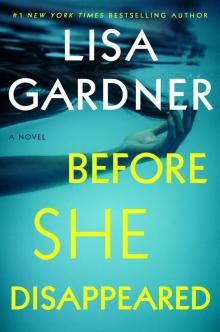 Before She Disappeared
Before She Disappeared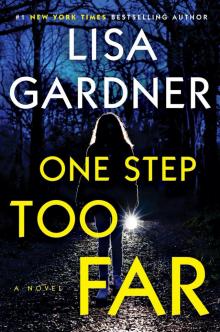 One Step Too Far
One Step Too Far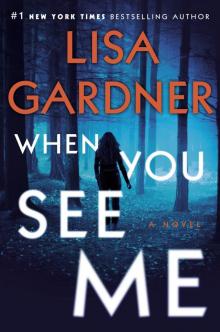 When You See Me
When You See Me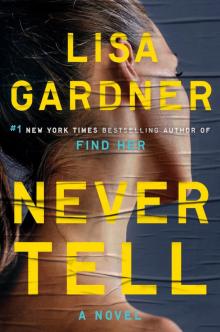 Never Tell
Never Tell Touch & Go
Touch & Go The Survivors Club
The Survivors Club MacNamara's Woman
MacNamara's Woman Love You More: A Novel
Love You More: A Novel Gone
Gone The Perfect Husband
The Perfect Husband Maggie's Man: A Family Secrets
Maggie's Man: A Family Secrets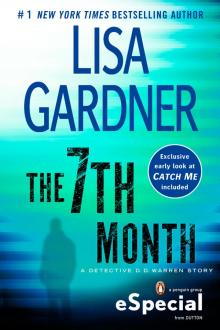 The 7th Month
The 7th Month The Neighbor
The Neighbor Hide
Hide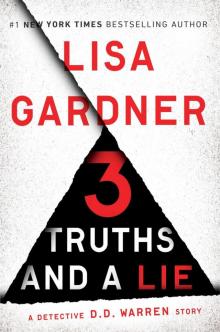 3 Truths and a Lie
3 Truths and a Lie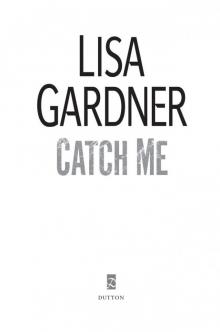 Catch Me
Catch Me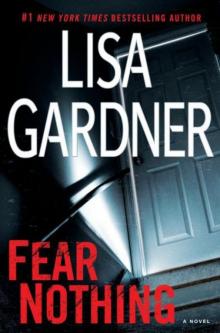 Fear Nothing: A Detective
Fear Nothing: A Detective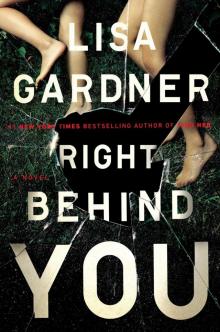 Right Behind You
Right Behind You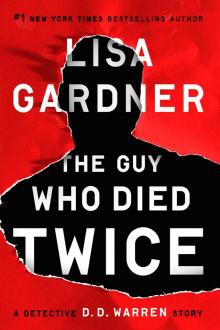 The Guy Who Died Twice
The Guy Who Died Twice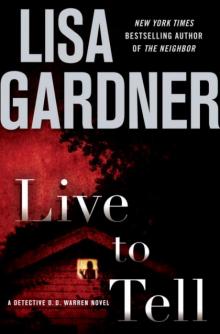 Live to Tell: A Detective D.D. Warren Novel
Live to Tell: A Detective D.D. Warren Novel Live to Tell
Live to Tell Maggie's Man: A Family Secrets Novel
Maggie's Man: A Family Secrets Novel The Other Daughter
The Other Daughter Alone
Alone Crash & Burn
Crash & Burn The Detective D. D. Warren Series 5-Book Bundle
The Detective D. D. Warren Series 5-Book Bundle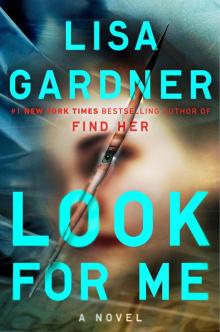 Look for Me
Look for Me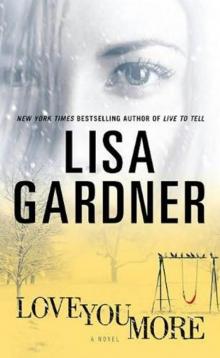 Love You More
Love You More The FBI Profiler Series 6-Book Bundle
The FBI Profiler Series 6-Book Bundle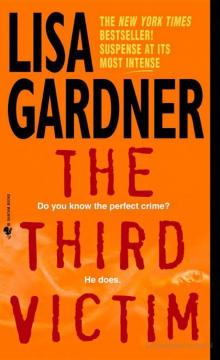 The Third Victim (Quincy / Rainie)
The Third Victim (Quincy / Rainie) Say Goodbye
Say Goodbye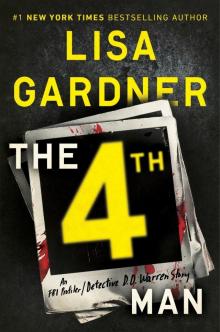 The 4th Man
The 4th Man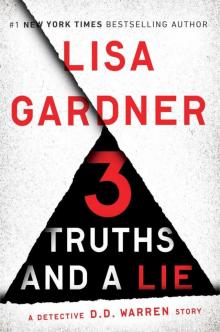 3 Truths and a Lie: A Detective D. D. Warren Story (Kindle Single)
3 Truths and a Lie: A Detective D. D. Warren Story (Kindle Single) Brandon's Bride
Brandon's Bride